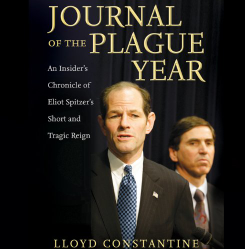At upcoming debates, Democratic presidential candidates will be asked whether they support reparations to African-Americans for America’s original and continuous sin. Not certain that Trump, Bill Weld and any other Republicans seeking the nomination will be asked that. If there are debates and hosted by Fox, a more likely question is whether Brown v. Board should be overruled.
How reparations would work, look and feel, might be previewed in the informal but generally understood and obeyed reparations regime that prevails in theatre.

Kelli O’Hara
H.L.’s most recent experience with this regime occurred when seeing the current Broadway revival of Cole Porter’s Kiss Me Kate. It stars Kelli O’Hara as both Lilli and Kate, Williams Shakespeare’s shrew needing taming. Just presenting the play at this moment, involving the merits of female subjugation and originally containing a spanking scene, makes me too wonder why the Roundabout Theatre Company did it.
But they did, and your bonus HL theatre review is the show’s fatal weakness is that O’Hara simply is too strong, powerful and talented to suspend disbelief that she would ever be tamed by the competent and earnest actor assigned the role of bringing her to heel. Both in the play and the one within the play.
And the magical suspension required to fully experience and appreciate good theatre is made even harder here, because in real-life O’Hara, a beautiful blonde, is also cast that way as Kate in 16th Century Venice. But her wealthy dad, who must marry her off so his younger daughter can wed, is played by a wonderful African-American actor, Mel Johnson, Jr. Not so wonderful, however, that one can suspend and believe he is her biological father or that in 1592 this wealthy black Venetian adopted these two white girls. This results in a high school like theatre experience, albeit with extraordinarily talented performers.

Nina Simone & Zoe Saldana
For Kiss Me Kate, theatre reparation rules were in force and on display. Rule One says that African-American and other minority actors can, should and increasing must be cast in parts written for white actors. Rule Two says that white actors may not play parts written for black or other minority actors. People of an age remember when that was frequently done. Olivier as Othello, Marlon Brando as Sakini in The Teahouse of the August Moon and Jennifer Jones as Han Suyin in Love Is A Many-Splendored Thing, painfully spring to mind. Even worse African-American actress Juanita Hall cast as the Tonkinese Bloody Mary in South Pacific and as the Chinese-American Auntie Liang in Flower Drum Song. That casting was done in the “non-whites all look alike” era.
The current reparations regime, in part, is recompense for those atrocious old days and practices. And the new regime also incorporates colorism into the rules. When African-American actress Zoe Saldana played Nina Simone in the biopic Nina, the film was widely and viciously attacked because Saldana, according to the rules, was not naturally dark enough and wore a wig and other makeup to more closely resemble Simone. Think Meryl Streep as Margaret Thatcher.

“Oak” Onaodowan & Mandy Patinkin
There are other rules as well, but so tortured and complicated that they are best described in context. The recent debacle involving Natasha, Pierre & The Great Comet of 1812, a musical adaptation of a portion of Tolstoy’s War and Peace, provides such context. Applying Rule One, on July 11, 2017 Okieriete (“Oak”) Onaodowan, an African-American actor assumed the role of Pierre, a 19th Century white Russian. No relation to “The Dude.” Onaodowan rose to fame playing two other white dudes, James Madison and Hercules Mulligan in Hamilton. That has nothing to do with Rule One nor reparations. Hamilton is a work of genius, involving an ancient theatrical convention, similar to the current casting of Glenda Jackson as King Lear.

Gunnar Myrdal
After Onaodowan started playing Pierre, and in an effort to extend the run of a show with waning sales, Mandy Patinkin was hired to replace Onaodowan for just three weeks, during which Oak would receive full salary. Patinkin both looks and is of Russian descent. Outrage and protests ensued. Patinkin withdrew, and the show closed soon after, depriving many actors and a highly diverse group of theatre folk of their jobs.
That’s the thing with reparations. There will be anomalies and discrete injustices. There will be many unintended consequences, good and bad, wonderful, perverse and just weird. No system is perfect and reparations in the theatre and more generally may finally help solve what Myrdal called the American Dilemma. But the theatre provides some examples to be considered.



As usual, HL is balanced and clear-headed. As a person of the theater, including (cough) Natasha Pierre, I can attest to the unintended consequences of these so called “reparations” but the longer term good of their objectives.